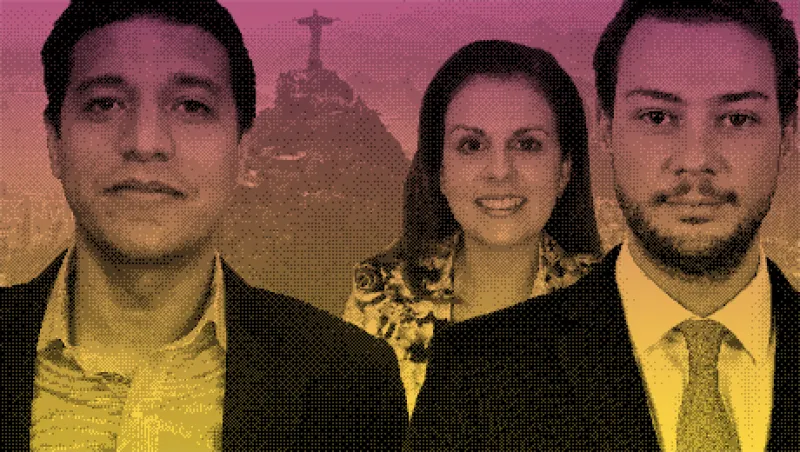China’s slowing economy and the U.S. Federal Reserve’s plans to scale back its program of quantitative easing are each having a deleterious effect on Brazil, but Guilherme Paiva alludes to another country to explain the malaise afflicting Latin America’s largest market.
“I like to call it Dutch disease on steroids,” quips Paiva, Morgan Stanley’s chief equity strategist for the region, embellishing a term economists use to describe an environment in which surging commodities prices strengthen a nation’s currency, thus making its other exports less competitive. That’s what happened in Brazil during its period of exponential growth from 2003 through 2008, the New York-based analyst explains, and “it was accompanied by a government policy of labor cost increases that were not underpinned by productivity enhancements.”
The problem is exacerbated by the fact that policymakers are using cyclical tools to deal with structural problems, Paiva says, so “you get a trade-off — either higher inflation or lower growth.”
Or in Brazil’s case, both.
“The outlook for Brazil remains challenging: high inflation coupled with low economic growth,” affirms Ilan Goldfajn, chief economist at Itaú BBA in São Paulo. “Brazil is in the tough position to have to tighten economic policy to fight inflation — through higher interest rates and lower public spending — even as economic growth remains subpar and street demonstrations appeared in June. We foresee a tough period before the 2014 [congressional and presidential] elections.”
So does the International Monetary Fund. In July the Washington-based economic group slashed its forecast for Brazil’s real gross domestic product growth from 3 percent to 2.5 percent for this year and from 4 percent to 3.2 percent for 2014.
But while Brazil may be down — its benchmark Bovespa index has been one of the world’s worst performers, skidding more than 28 percent year-to-date through mid-July — it’s certainly not out of opportunities for money managers that know where to look. Investors say that no firm provides better guidance than BTG Pactual, which for a second straight year leads the All-Brazil Research Team, Institutional Investor’s annual ranking of the country’s best sell-side analysts. Itaú BBA returns in second place but the gap between the São Paulo-based rivals has narrowed considerably; the former captures 17 total team positions, the same number as last year, while the latter adds three spots, bringing its total to 16.
However, when a rating of four is assigned to each first-place position, three to each second-place spot, and so on, Itaú emerges victorious. Its weighted total is 52 to BTG Pactual’s 45.
Credit Suisse doesn’t advance from third place even though it, too, gains three positions, for a total of 12. Bank of America Merrill Lynch is the year’s biggest upward mover, jumping from No. 6 to No. 4 after increasing its team total by two, to nine. Fifth place is shared by two firms: Bradesco Corretora, which falls from No. 3 after losing one spot, leaving it with eight, and Santander, whose rank and team-position total are the same as last year’s.
These results are based on responses from 644 buy-side analysts and portfolio managers at 329 institutions, domestic and foreign, managing $230 billion in Brazilian equities and $167.6 billion in Brazilian debt.
This year marks the tenth anniversary of the survey. Only five analysts have made the team every year: BTG Pactual’s Edmo Chagas, a runner-up this year in both Metals & Mining and Pulp & Paper, and Gustavo Gattass, now in his third straight year at No. 1 in Chemicals & Oil; Credit Suisse’s Emerson Leite, who finishes third in Chemicals & Oil; J.P. Morgan’s Pedro Martins Jr., who captures third place in Equity Strategy; and Itaú BBA’s Juliana Rozenbaum, No. 2 in Consumer Goods.
Read more in the 2013 All-Brazil Research Team ranking.






